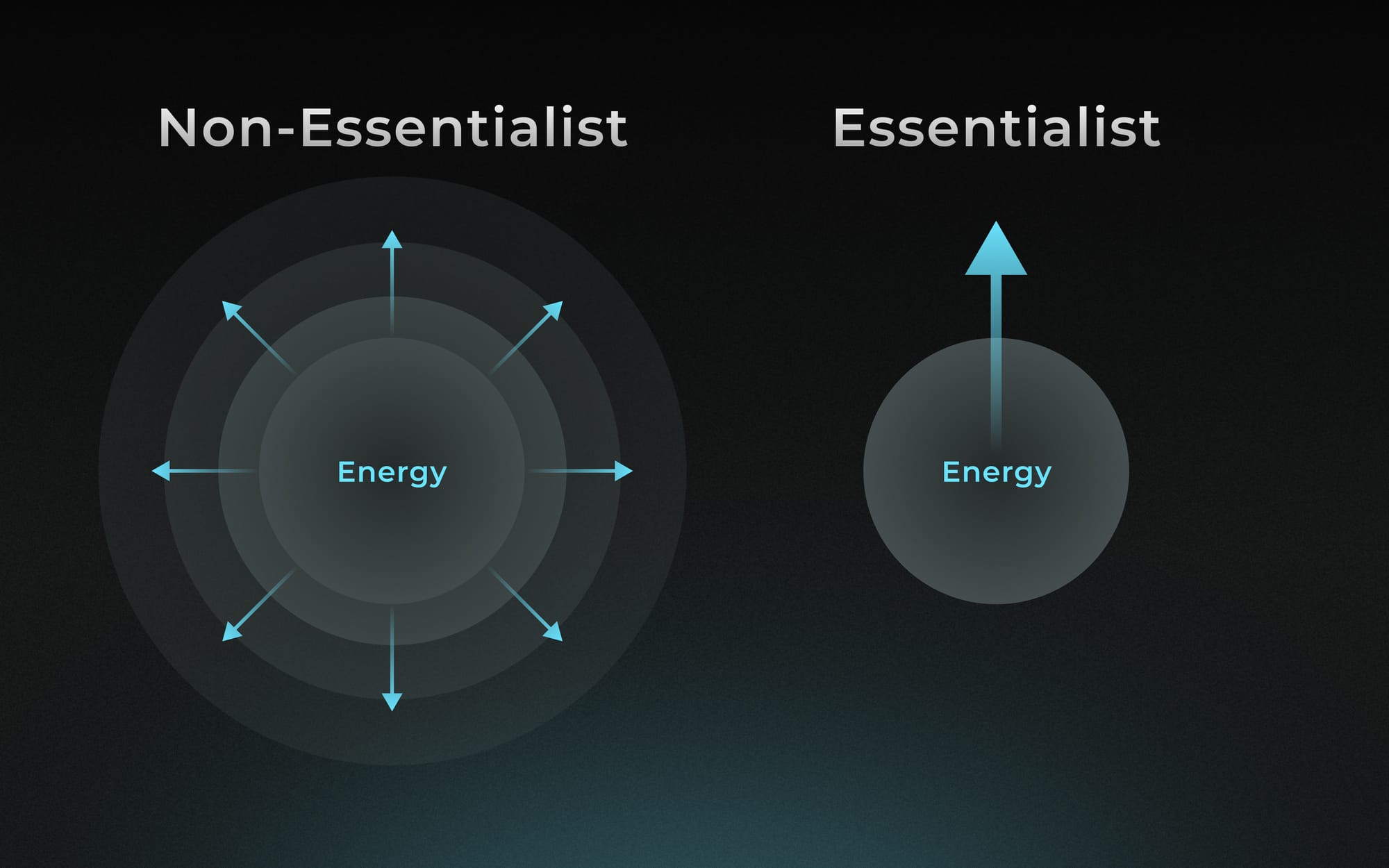Less but Better: The Power of Essentialism

How often do we lose sight of what is essential?
We work hard within the time we have. Yet is that effort truly aimed at the essential, or are we spending energy on what does not matter?
A short checklist can help you take stock. How many items would apply to you The more that do, the farther you may be from the essential.
We drift not because we lack time, but because we pour too much energy into the nonessential. To change that, it helps to adopt a philosophy and a way of living that cuts through to the core.
Dieter Rams and Essentialism
Dieter Rams championed a design philosophy often summarized as “less but better,” a focus on the essence that resonated deeply with people who used his products. The point reaches far beyond design. It shows why concentrating on the essential matters across every part of life.
Greg McKeown’s book Essentialism explains how to apply this idea to daily living. Essentialism means reducing what is unnecessary and directing attention to what is truly important. It is not something to follow casually. Treated as a conviction, it shifts results by moving focus from the trivial many to the vital few.
Essentialists and those who are not
The key difference is how energy is used. Essentialists direct energy along one clear vector, like a long arrow. People who are not essentialists draw many short arrows in many directions and dilute effort. This simple picture explains why selecting what truly matters, then concentrating time and resources there, produces outsized results.

Over the past decade we have faced more choices than ever before. That flood makes it harder to tell what is truly important. For the first time in history people must manage their own lives at this level of choice, and society has offered little preparation for it.
How to become an essentialist
“I must do it.” “Everything is important.” “I can do it all.” These three beliefs are common and persuasive, which is why Essentialism asks for a change in how we think.
Becoming an essentialist is not merely doing less. It is choosing what is truly important and acting in line with that choice.
The practices below help:
1. Build habits
Repeated actions simplify life. Habits automate small decisions, conserve energy, and free attention for what matters.
2. Remove obstacles
Clear away what gets in the way of the essential, from physical clutter to sources of mental strain.
3. Set priorities
Trying to do everything usually means nothing is done well. Choose and spend energy on what is truly important.
4. Create buffers
Leave room for the unexpected so focus on the essential is not derailed. Flexible schedules and contingency plans help.
5. Advance a little at a time
All at once often leads to giving up. Small daily steps accumulate into meaningful change.
The core of Essentialism: focus on the essential and repeat it
The heart of Essentialism is simple. Choose the essential, then repeat it until it becomes a habit, so effort moves in one concentrated direction. As unnecessary work falls away and attention centers on what matters, potential turns into results. The goal is not simply to work hard, but to work hard in the right direction. That is the message of Essentialism.
Small ways to start now
Consider a few changes you can make immediately.
- Record and reflect to find the essential. To know what is essential, first notice what is not. For the remaining days of the year, write every activity on your calendar. As you review each day, mark what was truly important. This helps filter out the nonessential and deepen focus on the essential. Then design a simple routine you can practice for fifteen to twenty minutes a day so the remaining month feels intentional.
- Reduce the unnecessary. Clear physical clutter and unhelpful thoughts. A tidy environment supports better focus.
- Build buffer time. Add generous margins to your plan so surprises do not pull you away from what matters.
- Begin one small habit. Before 2025 begins, choose one small practice such as ten minutes of reading or stretching each day, and let consistency create its own results.
Small changes you can act on now will add up to larger change. Use the last days of 2024 as practice in focusing on the essential, and meet the new year closer to what truly matters. Along the way you will see that you are moving a little farther in the right direction each day.
